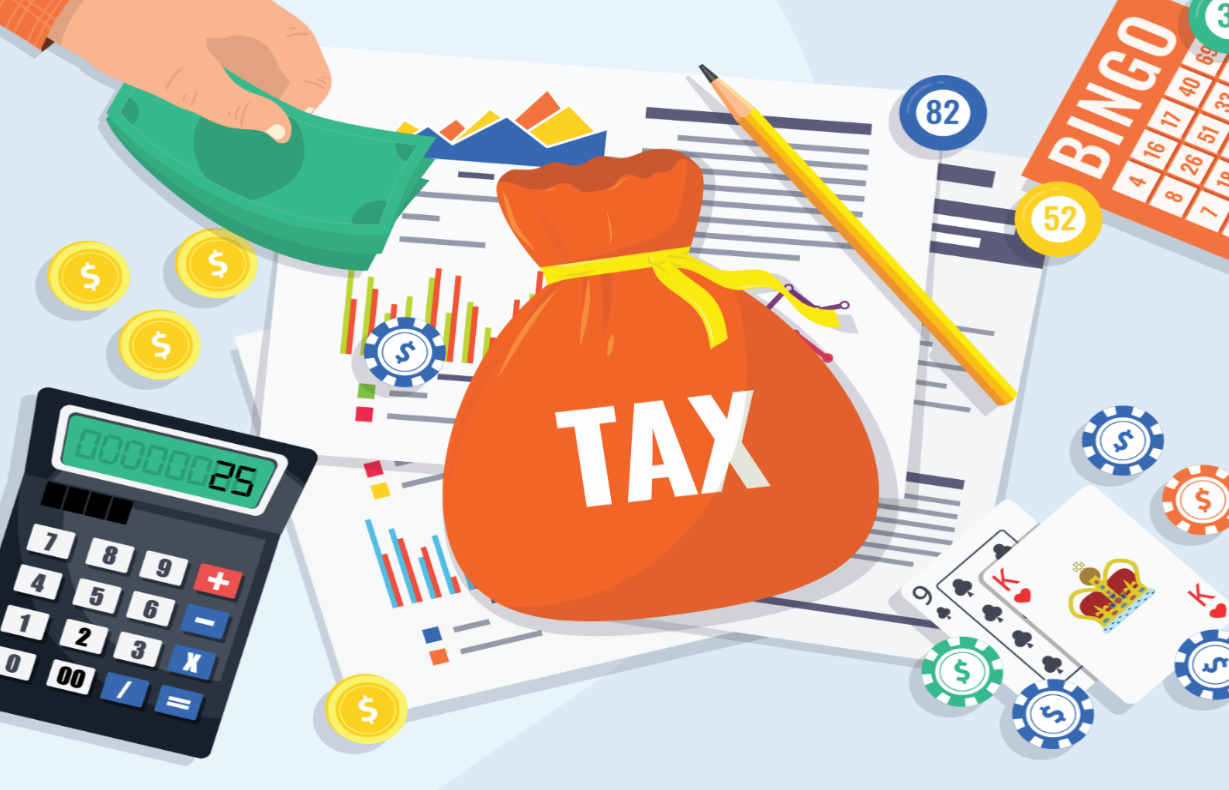Yes, gambling is taxable in the Philippines. The government levies various tax rates on different gambling activities, including land-based casinos, online gaming operations, national lotteries, and traditional games.
Types of Gambling Activities in the Philippines
Land-based Casinos
Land-based casinos are among the most prominent and lucrative gambling establishments in the Philippines. Strategically located in major cities and tourist destinations, these casinos offer a wide range of games, including slot machines, poker, blackjack, and roulette. Major chains, such as Resorts World Manila and City of Dreams Manila, attract both local and international gamblers. These establishments not only serve as gambling hubs but also offer entertainment, dining, and luxury accommodation options.

Online Gaming (Pogos)
Online gaming, particularly through Philippine Offshore Gaming Operators (POGOs), has seen significant growth in recent years. From digital versions of classic casino games to sports betting platforms, POGOs cater to a diverse range of players. Their operations, although controversial, have brought considerable revenue to the country. With the rise of technology and ease of access to the internet, online gaming’s popularity continues to soar, attracting players from various parts of the world.
National Lotteries and Sweepstakes
National lotteries and sweepstakes have been a staple in Filipino culture for many decades. Managed by the Philippine Charity Sweepstakes Office (PCSO), these games provide a chance for citizens to win significant amounts while contributing to charitable causes. The PCSO conducts various games, including Lotto, Small Town Lottery, and Keno, with draws broadcasted on national television.
Cockfighting and Horse Racing
Cockfighting, locally known as “sabong,” and horse racing are traditional gambling activities deeply rooted in Filipino culture. Sabong is not just a form of gambling but also considered a cultural spectacle, often drawing large crowds in arenas throughout the country. On the other hand, horse racing events, such as those in Santa Ana Park and San Lazaro Leisure Park, showcase the prowess of local jockeys and breeders. Both activities have faced challenges in recent years, but their cultural significance ensures they remain fixtures in the Philippine gambling landscape.
Current Taxation Framework
Tax Rates for Different Gambling Activities
The Philippine government has established varying tax rates for different gambling activities to ensure a fair and balanced revenue collection. For Online Gaming through POGOs, there is a specific tax structure in place, which considers both the gross gaming revenue and the income generated from operations. National lotteries and sweepstakes operated by the Philippine Charity Sweepstakes Office (PCSO) have their separate tax guidelines, ensuring contributions to charitable causes. Traditional games like cockfighting and horse racing, due to their cultural significance, also have distinct tax schemes to protect and promote these activities.

Regulatory Bodies and Their Roles
Regulating the diverse range of gambling activities in the Philippines is crucial for maintaining order, ensuring fairness, and safeguarding players’ interests. The Philippine Amusement and Gaming Corporation (PAGCOR) is the primary agency overseeing casinos and online gaming operators. Its roles encompass licensing, monitoring, and ensuring compliance with legal standards.
Comparison with Other ASEAN Countries
When benchmarking the Philippines’ gambling taxation framework against other ASEAN countries, distinct differences and similarities emerge. For instance, Singapore imposes high entry levies on residents entering their casinos, acting as a form of taxation, whereas Malaysia’s Genting Highlands attracts both local and international tourists with its unique tax structure. Thailand, on the other hand, has strict gambling prohibitions, with exceptions like the national lottery. By comparing these frameworks, the Philippines aims to adapt best practices and ensure its gambling industry remains competitive while maximizing revenue for national development.
Controversies and Challenges
Tax Evasion and Underreporting
Tax evasion remains a persistent issue in the Philippine gambling industry. Some operators, especially unlicensed ones, find ways to evade tax payments or underreport their earnings, thus reducing their tax liability. For instance, in 2019, the Philippine government reported that POGOs owed an estimated PHP 50 billion (around USD 1 billion) in unpaid taxes. This significant loss in potential revenue has led the government to intensify its efforts in monitoring and cracking down on such operators. Strengthening regulatory oversight, along with stringent penalties for tax evasion, is now a priority for agencies like PAGCOR.
Socio-economic Impacts of Gambling
Addiction and problem gambling lead to financial hardships for families, increased crime rates, and a strain on social services. Cities with high concentrations of casinos and gambling establishments often report higher incidences of related social problems. This has led to debates on the ethical considerations of promoting gambling as a major source of revenue.

International Implications and Concerns
The rapid growth of online gambling, especially POGOs, has brought about international concerns. In response, the Philippines has had to balance its economic interests with the need to maintain good diplomatic relations, leading to policy reviews and revisions to ensure the industry operates within international norms and agreements.
Benefits of Gambling Taxation
Infrastructure and Development Projects
Gambling taxation has become a significant revenue stream for the Philippines, contributing considerably to infrastructure and development projects. With the funds collected from various gambling activities, the government has been able to initiate and support projects like road constructions, bridge repairs, and the modernization of public transportation. A notable example is the “Build, Build, Build” program, a flagship initiative aiming to accelerate infrastructure development across the country. Through the revenues generated from casinos, lotteries, and online gaming platforms, many of these projects receive the necessary funding to move from conception to completion.
Welfare and Social Programs
The revenue generated from gambling doesn’t just go into infrastructure; it also plays a crucial role in supporting welfare and social programs.. The Philippine Charity Sweepstakes Office (PCSO), in particular, has been instrumental in channeling funds towards charitable causes. From medical assistance to disaster relief operations, gambling tax revenues ensure that these programs can operate and serve the Filipino people continuously.
Employment Opportunities
The gambling industry, directly and indirectly, has been a significant employment generator in the Philippines. Casinos, both land-based and online, require a vast workforce, ranging from dealers to administrative staff. The rapid expansion of POGOs has also opened up opportunities in tech, customer support, and other related fields. Furthermore, the infrastructure projects funded by gambling tax revenues indirectly create thousands of jobs in construction, engineering, and project management. As the industry grows, so does its capacity to provide stable employment opportunities for many Filipinos.

